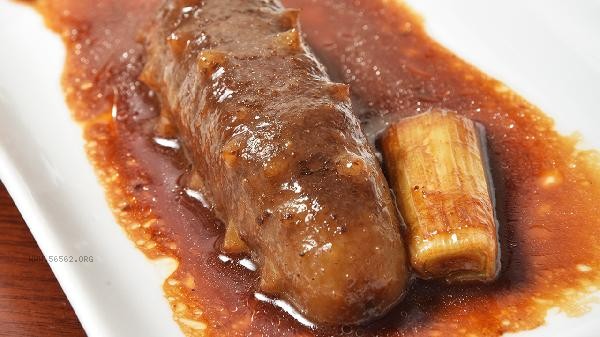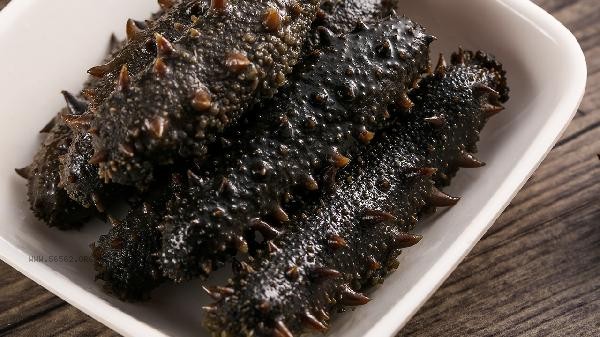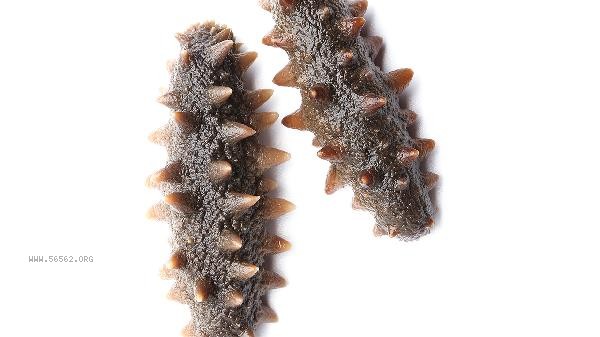The fishy smell of sea cucumbers is mainly related to their biological characteristics, improper processing methods, or poor storage conditions. Sea cucumbers are marine echinoderms that contain fishy substances such as trimethylamine oxide in their bodies. If the internal organs are not thoroughly removed during processing or if the deodorization treatment is insufficient, or if ammonia compounds are produced during protein decomposition during storage, the fishy smell will be exacerbated.

1. Biological characteristics
Sea cucumber body walls are rich in mucopolysaccharides and saponins, which themselves have the fishy and astringent taste of marine organisms. Its digestive tract residue contains trimethylamine oxide, which releases a fishy odor under enzymatic hydrolysis. Wild sea cucumbers usually have a stronger fishy smell than farmed sea cucumbers due to their feeding on algae and plankton.
2. Processing technology defects
Traditional dry sea cucumber production requires multiple processes such as boiling, salting, and drying. If the cooking time is insufficient or the salting is not sufficient, it is impossible to completely decompose the fishy precursor substances. If the amount of deodorizer used for ready to eat sea cucumber is insufficient or the rinsing is not thorough, there will still be residual fishy odor. Some inferior products may use chemical agents to rapidly expand, resulting in residual odors.
3. Storage and transportation issues
Dried sea cucumber is prone to microbial growth when exposed to moisture, which promotes protein breakdown and produces ammonia odor. If the cold chain of ready to eat sea cucumber breaks or the packaging leaks, it will undergo fat oxidation and rancidity, resulting in a mixture of halal and fishy flavors. Repeated thawing of frozen sea cucumber can accelerate the loss of cell fluid and increase the concentration of fishy substances.

4. Variety Differences
Sea cucumbers have a lighter fishy smell, while varieties such as ginseng and plum blossom ginseng have a heavier fishy smell. Russian red ginseng accumulates less fishy substances due to the low temperature of its growing water; The rough sea cucumber in tropical waters has a stronger fishy smell. Among the same species, older sea cucumbers also have a more pronounced fishy smell.
5. Improper cooking treatment
Failure to change the water frequently or excessively high water temperature during soaking can lead to incomplete dissolution of fishy substances. Failure to blanch ginger slices or cooking wine before cooking, or insufficient pairing with deodorizing ingredients such as chives and garlic, cannot effectively mask the fishy smell. Cooking methods such as high-temperature frying may lock in the fishy smell instead of removing it.

It is recommended to purchase sea cucumber products that have passed quality inspection through legitimate channels. Dry products should be sealed and stored against moisture, while ready to eat products should be refrigerated and consumed within their shelf life. When soaking hair, slowly soak it in ice water and change the water multiple times. Adding a small amount of tea or lemon slices can help remove the fishy smell. Soak in scallion and ginger water before cooking, or pair with fresh ingredients such as mushrooms and ham, which can neutralize the fishy smell and enhance the freshness. For those who are sensitive to fishy odors, they can choose ready to eat non fishy sea cucumber or sea cucumber peptide products.









Comments (0)
Leave a Comment
No comments yet
Be the first to share your thoughts!